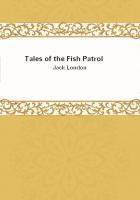The poor girl marries the Marquis in the end. This, too, is a return to former days, to the days when kings married shepherdesses.
The pleasure that we have in reading such novels is very much like that which we used to feel on hearing fairy-stories.
"If some one were to tell me the story of _Peau d'Ane_, I should be delighted," confessed La Fontaine, and surely it would be bad form to be more difficult and over-nice than he was. Big children as we are, we need stories which give food to our imagination, after being disappointed by the realities of life. This is perhaps the very object of the novel. Romance is not necessarily an exaggerated aspiration towards imaginary things. It is something else too.
It is the revolt of the soul which is oppressed by the yoke of Nature. It is the expression of that tendency within us towards a ******* which is impossible, but of which we nevertheless dream.
An iron law presides over our destiny. Around us and within us, the series of causes and effects continues to unwind its hard chain.
Every single one of our deeds bears its consequence, and this goes on to eternity. Every fault of ours will bring its chastisement.
Every weakness will have to be made good. There is not a moment of oblivion, not an instant when we may cease to be on our guard.
Romantic illusion is, then, just an attempt to escape, at least in imagination, from the tyranny of universal order.
It is impossible, in this volume, to consider all George Sand's works.
Some of her others are charming, but the whole series would perhaps appear somewhat monotonous. There is, however, one novel of this epoch to which we must call attention, as it is like a burst of thunder during calm weather. It also reveals an aspect of George Sand's ideas which should not be passed over lightly.
This book was perhaps the only one George Sand wrote under the influence of anger. We refer to _Mademoiselle La Quintinie_.
Octave Feuillet had just published his _Histoire de Sibylle_, and this book made George Sand furiously angry. We are at a loss to comprehend her indignation. Feuillet's novel is very graceful and quite inoffensive. Sibylle is a fanciful young person, who from her earliest childhood dreams of impossible things.
She wants her grandfather to get a star for her, and another time she wants to ride on the swan's back as it swims in the pool.
When she is being prepared for her first communion, she has doubts about the truth of the Christian religion, but one night, during a storm, the priest of the place springs into a boat and goes to the rescue of some sailors in peril. All the difficulties of theological interpretations are at once dispelled for her.
A young man falls in love with her, but on discovering that he is not a believer she endeavours to convert him, and goes moonlight walks with him. Moonlight is sometimes dangerous for young girls, and, after one of these sentimental and theological strolls, she has a mysterious ailment. . . .
In order to understand George Sand's anger on reading this novel, which was both religious and social, and at the same time very harmless, we must know what her state of mind was on the essential question of religion.
In the first place, George Sand was not hostile to religious ideas.
She had a religion. There is a George Sand religion. There are not many dogmas, and the creed is ******. George Sand believed firmly in the existence of God. Without the notion of God, nothing can be explained and no problem solved. This God is not merely the "first cause." It is a personal and conscious God, whose essential, if not sole, function is to forgive--every one.
"The dogma of hell," she writes, "is a monstrosity, an imposture, a barbarism. . . . It is impious to doubt God's infinite pity, and to think that He does not always pardon, even the most guilty of men." This is certainly the most complete application that has ever been made of the law of pardon. This God is not the God of Jacob, nor of Pascal, nor even of Voltaire. He is not an unknown God either.
He is the God of Beranger and of all good people. George Sand believed also, very firmly, in the immortality of the soul.
On losing any of her family, the certainty of going to them some day was her great consolation.
"I see future and eternal life before me as a certainty," she said;"it is like a light, and, thanks to its brilliancy, other things cannot be seen; but the light is there, and that is all I need."Her belief was, then, in the existence of God, the goodness of Providence and the immortality of the soul. George Sand was an adept in natural religion.
She did not accept the idea of any revealed religion, and there was one of these revealed religions that she execrated.
This was the Catholic religion. Her correspondence on this subject during the period of the Second Empire is most significant.
She was a personal enemy of the Church, and spoke of the Jesuits as a subscriber to the _Siecle_ might do to-day. She feared the dagger of the Jesuits for Napoleon III, but at the same time she hoped there might be a frustrated attempt at murder, so that his eyes might be opened. The great danger of modern times, according to her, was the development of the clerical spirit.
She was not an advocate for liberty of education either.
"The priestly spirit has been encouraged," she wrote.[53] "France is overrun with convents, and wretched friars have been allowed to take possession of education." She considered that wherever the Church was mistress, it left its marks, which were unmistakable: stupidity and brutishness. She gave Brittany as an example.
[53] _Correspondance:_ To Barbes, May 12, 1867.
"There is nothing left," she writes, "when the priest and Catholic vandalism have passed by, destroying the monuments of the old world and leaving their lice for the future."[54]
[54] _Ibid.:_ To Flaubert, September 21, 1860.















